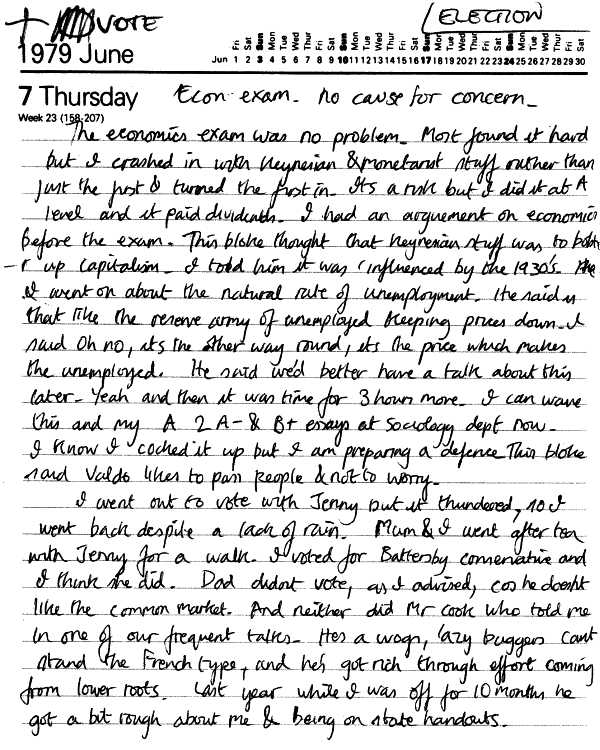THE UNIVERSITY OF HULL
ŻŻŻŻŻŻŻŻŻŻŻŻŻŻŻŻŻŻŻŻŻ
Qualifying Examination
For the Degree of Bachelor of Science in
ECONOMICS
Qualifying Examination
For the Degree of Bachelor of Arts in
ECONOMIC AND SOCIAL HISTORY
Qualifying Examination
For the Degree of Bachelor of Arts in
ECONOMIC AND SOCIAL HISTORY AND ECONOMICS
(Joint Degree)
Qualifying Examination
For the Degree of Bachelor of Arts in
ECONOMICS AND GEOGPAPHY
(Joint Degree)
Qualifying Examination
For the Degree of Bachelor of Arts in
ECONOMICS, POLITICS AND SOCIOLOGY
(Joint Degree)
Ancillary Examination
For the Degree of Bachelor of Arts in
ECONOMICS
1979
PRINCIPLES OF ECONOMICS
Thursday 7th June 2.00 p.m. to 5.00 p.m.
Answer FIVE questions in all
- Economists tend to emphasise the advantages of free trade and specialisation. Why, then, have most governments adopted protectionist policies?
- What consequences would follow if the government imposed a legal minimum wage higher than the existing wage in (a) a competitive labour market and (b) a monopsonistic labour market?
- Why should an increase of government spending in a closed economy have greater effects on gross national product than tax reductions in an open economy?
- To bribe supporters, a government gives all adult party members vouchers to the value of 50 dollars per annum which can be given in part payment for beer, so that they can buy it 10 cents per litre cheaper than other people. Would 50 dollars in cash have been a better bribe?
- How is it that the rate of interest reflects both the price of money and the productiveness of capital equipment?
- Explain the inverse relationship between marginal cost and marginal physical product.
- What effects might follow for the economy from a decision by the government to increase the money supply?
- Why axe the rentals of shops in a city centre generally higher than those of shops in the suburbs?
- Under what circumstances would you expect a change in the price of one commodity to affect the demand for another?
- Explain why, although an individual who saves more usually becomes richer, a nation that saves more may become poorer.
- Why is it usually accepted that oligopoly results in price rigidity? What consequences might result if oligopolists decided to engage in price competition?
- Why is it that in the interest of living standards it may be better to achieve economic growth by slower population growth rather than by increased saving.
[Includes grammatical errors and the fact that effectively a closed economy only has a Gross Domestic Product]

